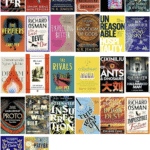Unselfish deeds are all very noble, but kindness has a rather more practical quality – it helps us survive. Here’s why it’s better to be nice than nasty.
Every so often, one of those online personality tests gets passed through my inbox, and one of the most common philosophical questions they ask is “Are most people inherently good?” I guess it’s supposed to separate the wide-eyed optimists from the aged cynics. Are humans basically a pretty decent bunch, or are we poorly-evolved animals keeping our savage instincts hidden until the next football riot or pub fight?
But the question of whether we are good or bad is a question for fundamentalists. I don’t believe humans have any ‘inherent’ morality – circumstance is key. And that doesn’t mean a triumph of nurture over nature – some people are unbelievably kind to others while others are, not to mince words, screwed up beyond help. But everyone’s personality is nevertheless shaped by their environment as well as their genetic inheritance.
There’s a branch of mathematics called ‘game theory’ which basically describes how people will behave in different environments, with different incentives. You only have to look at what happens in a disaster zone, such as the recent aftermath of Hurricane Katrina, to see how dramatically people adapt to what’s going on around them. In these situations, looting and violence are inevitable, even from people who just days before were decent, law abiding citizens.
One lesson from game theory and psychology is that people generally trust each other. We’ve evolved a sense of trust because we’re designed to act in a group – and prehistoric man couldn’t sit around the camp-fire looking suspiciously at each other when there was food to hunt. The same rules apply today, which explains why con artists find it so easy to phone up companies and get the people at the other end to disclose sensitive information – we naturally want to be helpful.
But there’s another side to this – and that is betrayal. We might be initially trusting, but if someone betrays us, our instincts are to hit back – hard. Harder even than their betrayal, because it’s so damn important that we show others that they better not even think of betraying us themselves. We’ve got to maintain the incentives of trust.
Now Dominic, you might ask, this is all very fascinating (which is very kind of you by the way) but what exactly does it have to do with Phil Haynes, and his ‘Day of Kindness’? Well – quite a lot. The point is that being kind to others isn’t only a nice thing to do, it’s what you need to do to survive and prosper in a world of apes still running on a brain designed for hunting and gathering. We value and reward trust, and we establish trust through these small acts of kindness and unselfish actions that today is all about promoting.
A lot of grief in our lives today is caused by people who are not deliberately being mean or nasty, but are simply too detached from us to have a personal connection and build trust. The most obvious example is work – especially where people are trained to meet targets or quotas. Everybody hates call centres, and that’s partly because we don’t trust them. They’re just trying to fob us off, or con us out us of our money, or get us to put down the phone so that they reach their targets for the number of calls answered and get their bonus.
In this scenario, there’s little room to show much kindness. But there are things we can do, even here, to make the experience better for everyone. Employees should be given some responsibility from management to show some compassion to a customer who needs it. Customers should treat them in return as real people, who like anyone don’t like being shouted at for a mistake that probably wasn’t their fault.
Traffic wardens are another good example. A bit of kindness from them would go a long way – don’t treat the single mother dropping her kids at school in the same way as someone who double parked a disabled space because they were too lazy to walk. And so on. If people don’t do this we’re ignoring one of our most basic instincts – people want to be helpful, but don’t like betrayal. People generally want to be kind, and stay within the law, and be decent human beings – but they don’t like others treating them badly or infringing their rights either.
This benefits us all, because we’ve all got an shared interest in getting along together.
And if all that didn’t persuade you to show a little kindness, just remember that at the end of the day we have another basic instinct – the joy of seeing a nasty person get their comeuppance. Don’t let it happen to you!
© Ruberyvillage.co.uk; We own DomSez, don’t mess.
You can comment on this article here







